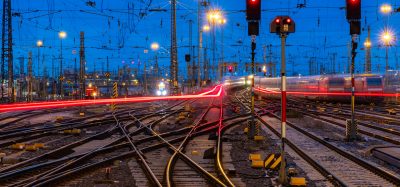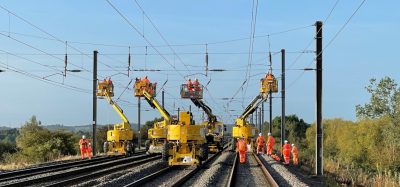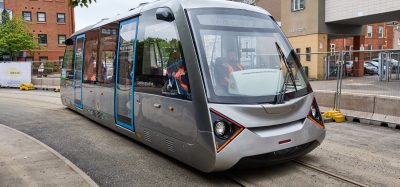Images: Germany’s most modern S-Bahn trains set for Munich
Posted: 2 August 2023 | Elliot Robinson (Editorial Assistant - Global Railway Review) | No comments yet
Siemens Mobility are to deliver 90 new S-Bahn trains to Munich which will offer passengers more space and greater comfort.
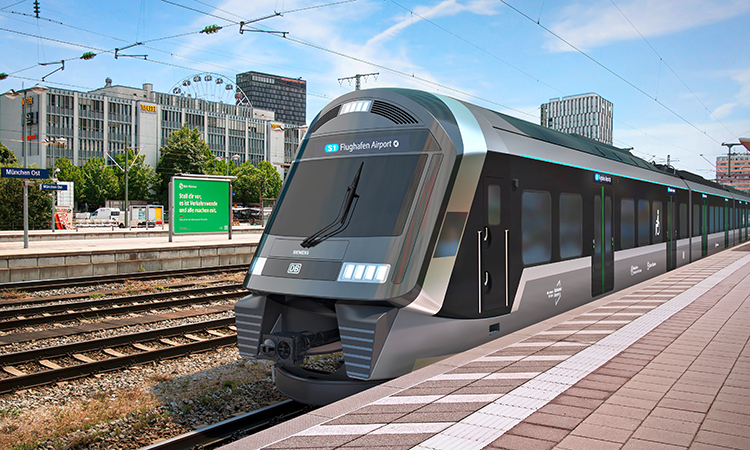

Credit: Siemens Mobility
Passengers on Munich’s S-Bahn can soon look forward to traveling on the most modern S-Bahn trains in Germany. Siemens Mobility will deliver 90 superlative new S-Bahn trains worth more than €2 billion after winning an EU-wide tender. The contract includes an option for additional trains. Financing for the trains is guaranteed by the State of Bavaria through a leasing model.
The new S-Bahn trains ordered for Munich offer more space, greater comfort and many innovations. The first trains are scheduled to enter passenger service at the end of 2028. For the first time in Germany, completely integrated S-Bahn trains with a total length of more than 200 meters will be in use, providing capacity for 1,841 passengers. With the order, the State of Bavaria and the Munich S-Bahn are preparing for expected passenger growth in coming decades and for the planned mobility transition. The trains are highly energy efficient, require little maintenance, and receive software updates via the cloud.
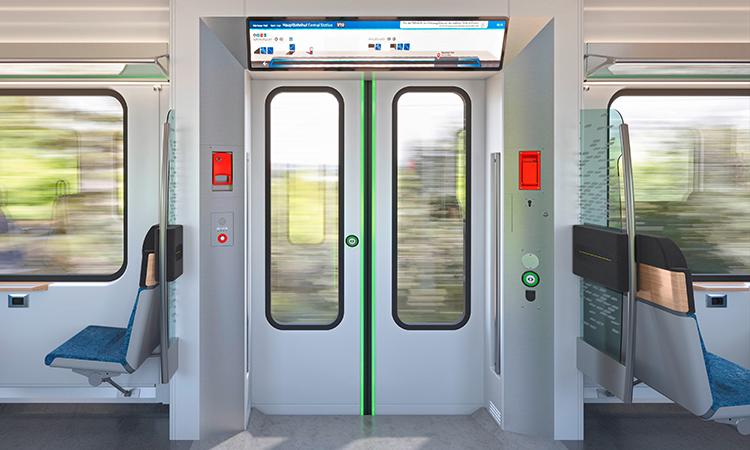

Credit: Siemens Mobility
“A 200-meter long S-Bahn means higher capacity, better punctuality, and greater comfort for our passengers,” Evelyn Palla, Board Member for Regional Transport at Deutsche Bahn AG, said. “Germany’s most modern S-Bahn trains will be an important component in our efforts to drive the mobility transition in the Munich region. Each of the new XXL trains will replace 1,500 cars during rush hours. This is truly local transport of the future.”
“This marks a huge step towards ensuring even more climate-friendly mobility in Bavaria’s largest metropolitan area,” Christian Bernreiter, Bavarian Transport Minister, said. “We are heralding a new era and taking the Munich S-Bahn into the future. As the person responsible for regional rail transport in Bavaria, I can say that this investment is well worth the price. After all, no less than two-thirds of all local rail passengers in Bavaria will benefit from the trains, and virtually all local transport in the Munich region more or less depends on a well-functioning and attractive S-Bahn.”
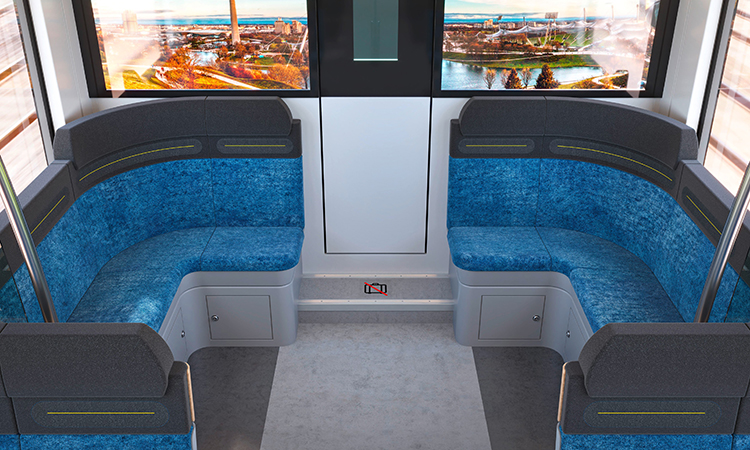

Credit: Siemens Mobility
“Siemens Mobility is especially proud to be delivering the most innovative S-Bahn trains in Germany,” Michael Peter, CEO of Siemens Mobility, said. “Providing unique digital functions, maximum passenger comfort, environmental protection, and operational safety, this S-Bahn train will set new standards for the mobility transition in Germany. In the future, passengers in Munich and the surrounding region will travel in comfortable trains that are exceptionally reliable and future-proof thanks to state-of-the-art Siemens rail technology.”
In the new trains, the interior LED lighting varies depending on the time of day. Classic three and four-seat arrangements offer more legroom than the trains currently in service. The cars also have group areas and folding seats. Greater passenger comfort and convenience is provided by free Wi-Fi, improved mobile phone reception with special windows, USB and power sockets, and generous storage racks. A far more powerful air conditioning system operating with environmentally friendly refrigerants ensures pleasant interior temperatures even in extreme heat of up to 45 degrees Celsius.
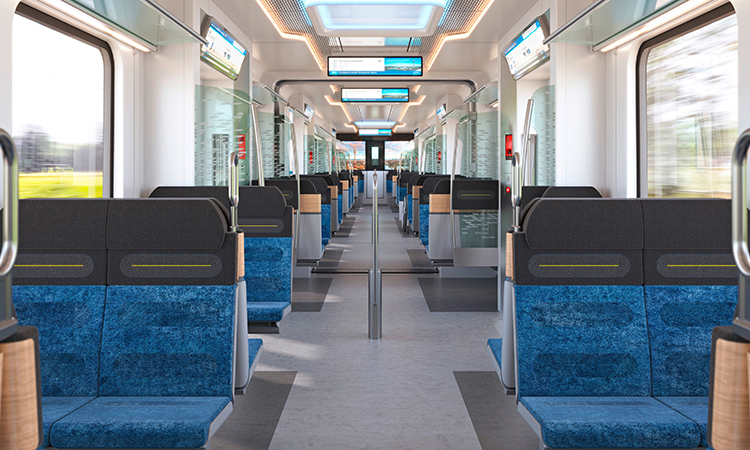

Credit: Siemens Mobility
The passenger information system is also completely new. Displays are located above the doors both inside and outside the car, on the ceiling and in the transitions between the cars. The displays track the course of the journey and provide information about the stations and the occupancy of the respective train. Before passengers exit, the displays indicate where the closest stairs or elevators are located on the platform. Outside the train, LED strips show the colour of the respective S-Bahn line.
Wide doors and spacious entry areas ensure easy and quick boarding and exiting and ease the optimal distribution of passengers throughout the train. Depending on the train’s occupancy, the folding seats can be automatically locked in place to provide additional standing room. Five of the 13 cars have large multi-purpose zones, accessed through three doors, that provide sufficient room for bicycles, strollers, luggage or walkers. Special areas at each end of the train provide space for wheelchairs. To better understand announcements made on the train, passengers with hearing aids can connect to the information system via Bluetooth.
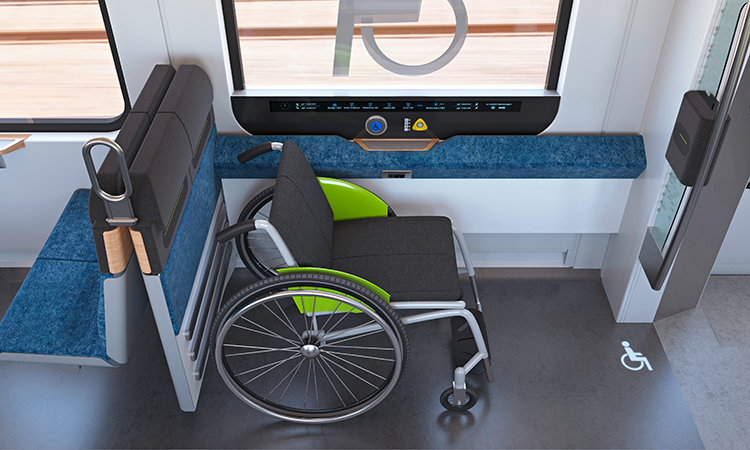

Credit: Siemens Mobility
The new trains are more innovative, more digitalised and more networked than ever before in order to minimise lifecycle costs through maximum energy efficiency, lower maintenance costs and optimised operational support. The S-Bahn trains are designed with a large number of redundant components and are equipped with the Railigent X system that guarantees maximum train availability. Railigent X is part of the open, digital Siemens Xcelerator business platform, which enables customers to achieve a simpler, faster and readily scalable digital transformation. Moreover, software updates for the trains no longer have to be manually installed in the depot, which is time-consuming, but are transmitted to the trains via a secure online connection as part of the maintenance.
Siemens Mobility equips all trains with its European Train Control System (ETCS), an Automatic Train Operation (ATO) system and a Train Integrity Monitoring System (TIMS). The train’s ETCS system combines the latest, reliable technology with lower maintenance costs through standardisation, and introduces interoperability to the Munich rail network, which DB plans to digitalise and equip with ETCS line equipment beginning in 2030. Thanks to their integration of ATO over ETCS, the new S-Bahn trains will be fit for rail transport of the future.
Related topics
European Rail Traffic Management System (ERTMS), European Train Control System (ETCS), Passenger Experience/Satisfaction, Rolling Stock Orders/Developments



